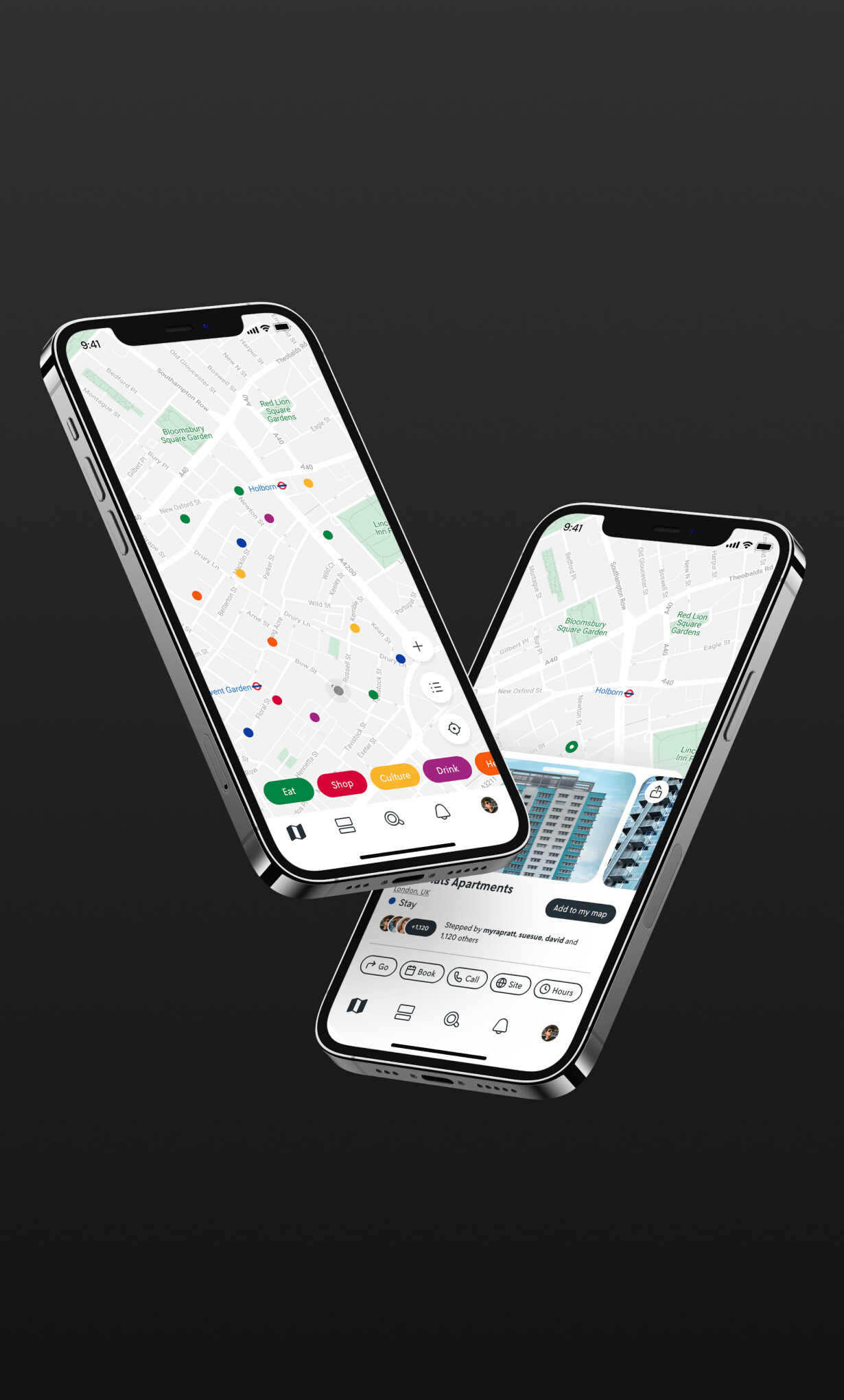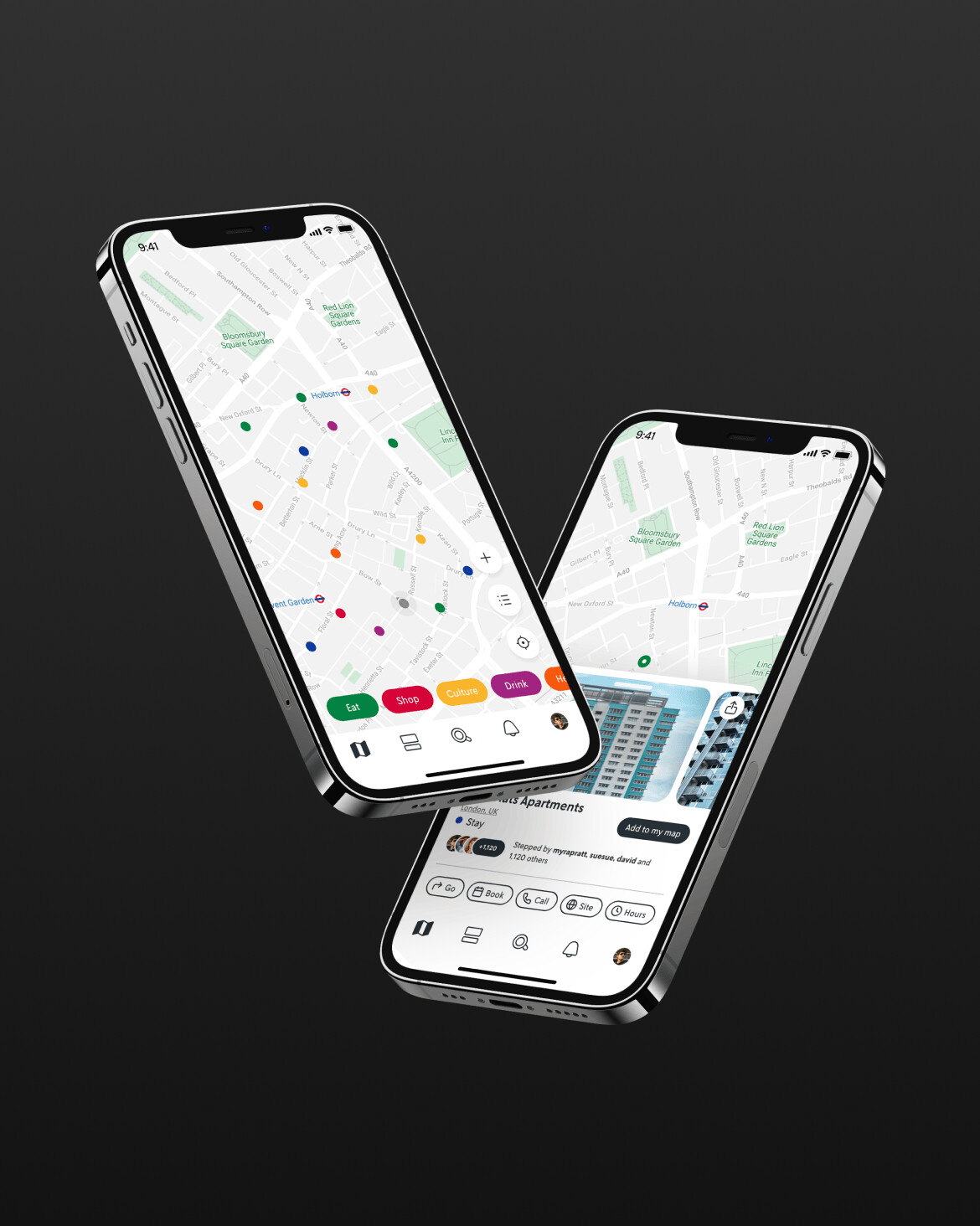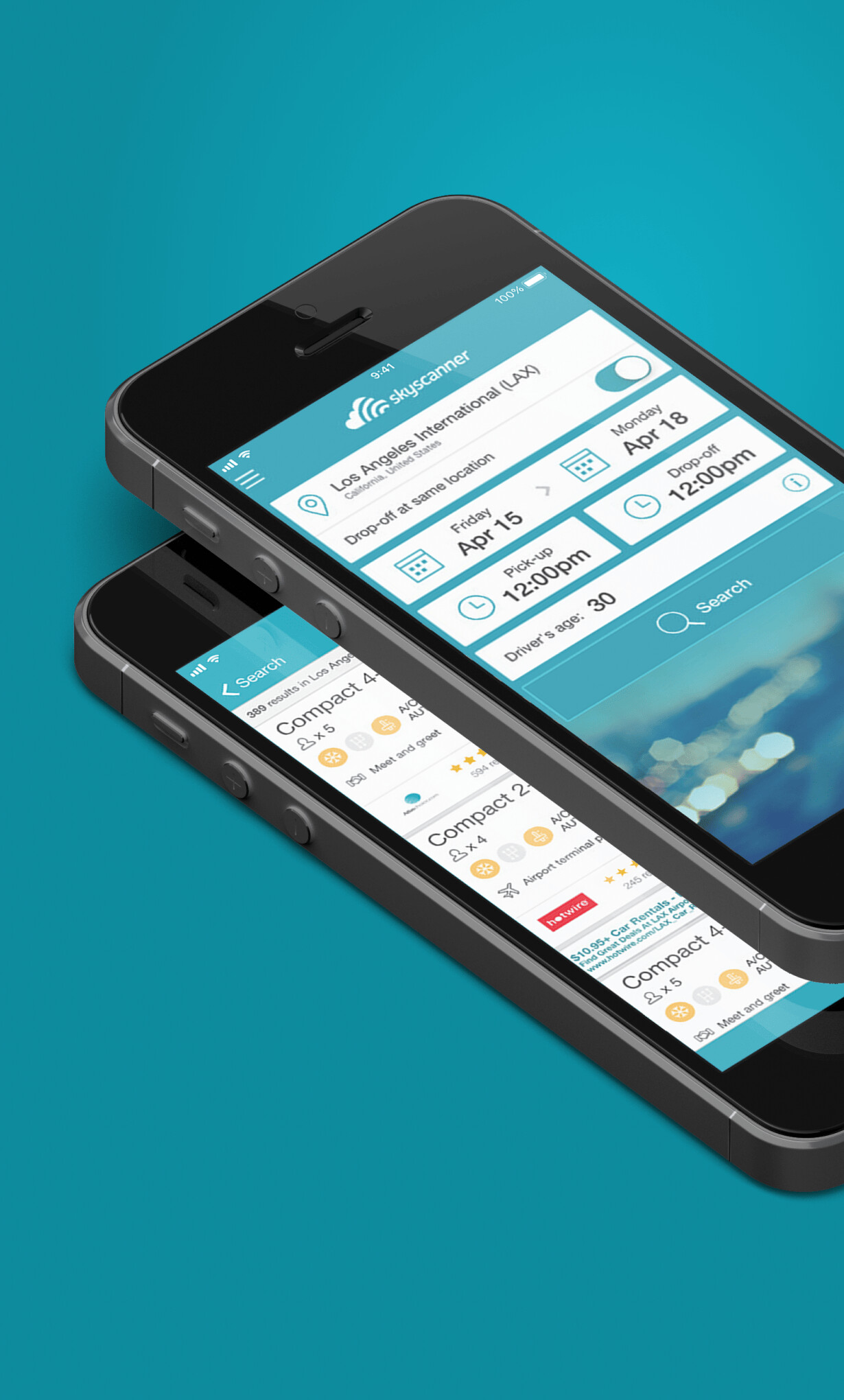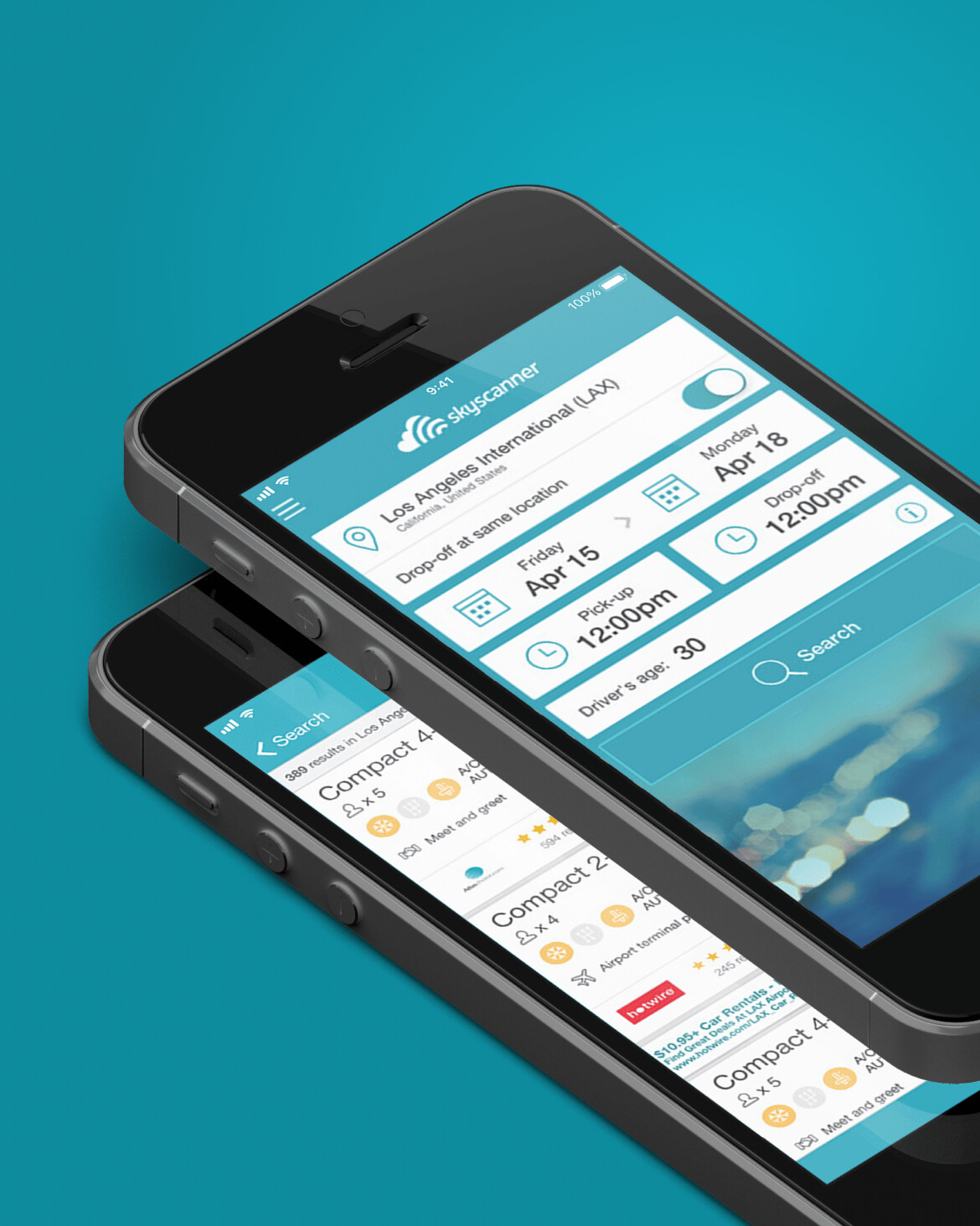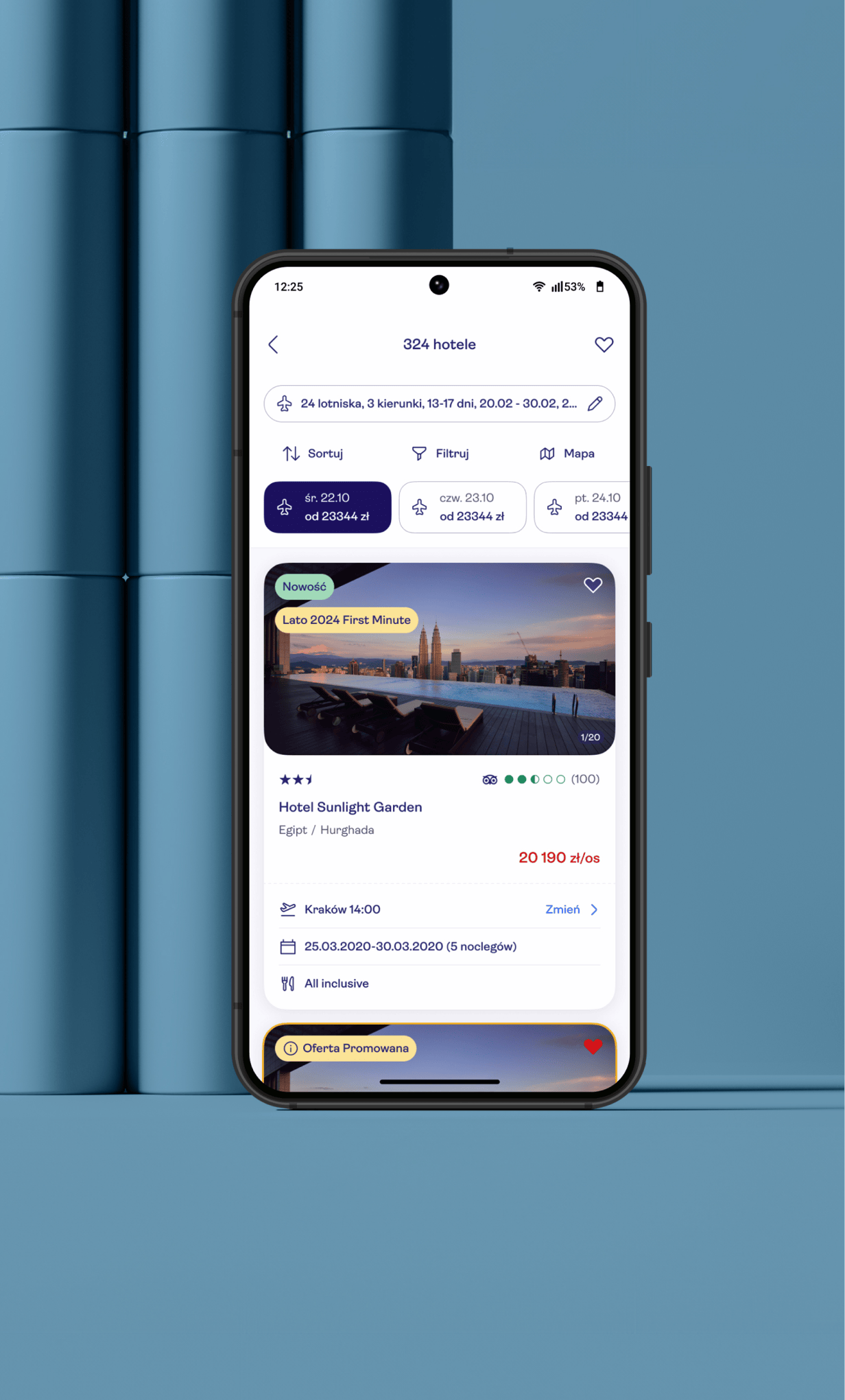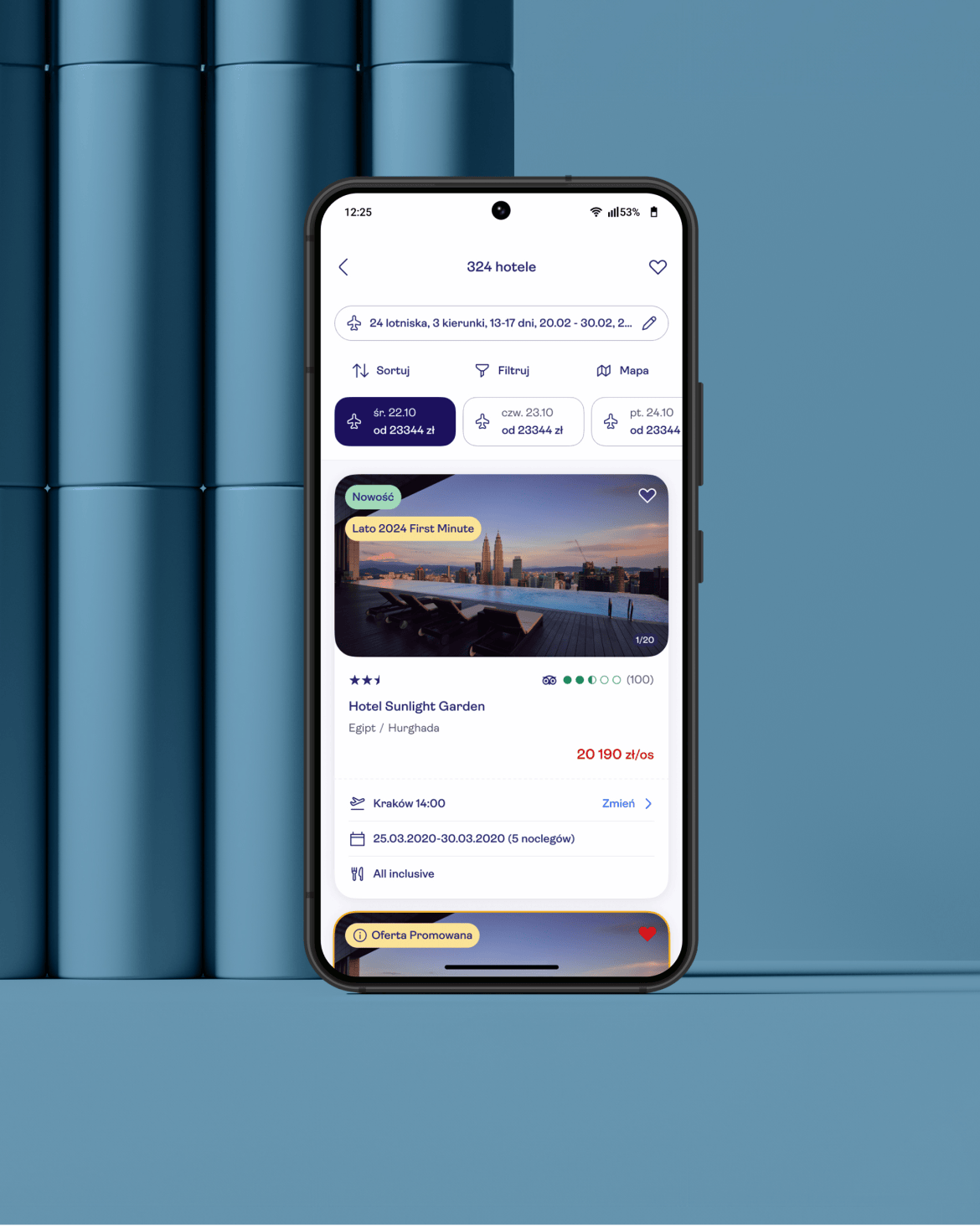Travel software development services
Achieve growth and global reach
Harness deep personalisation and customer data for scalable, impactful solutions. Elevate your product with our custom travel software development services.
Consult your idea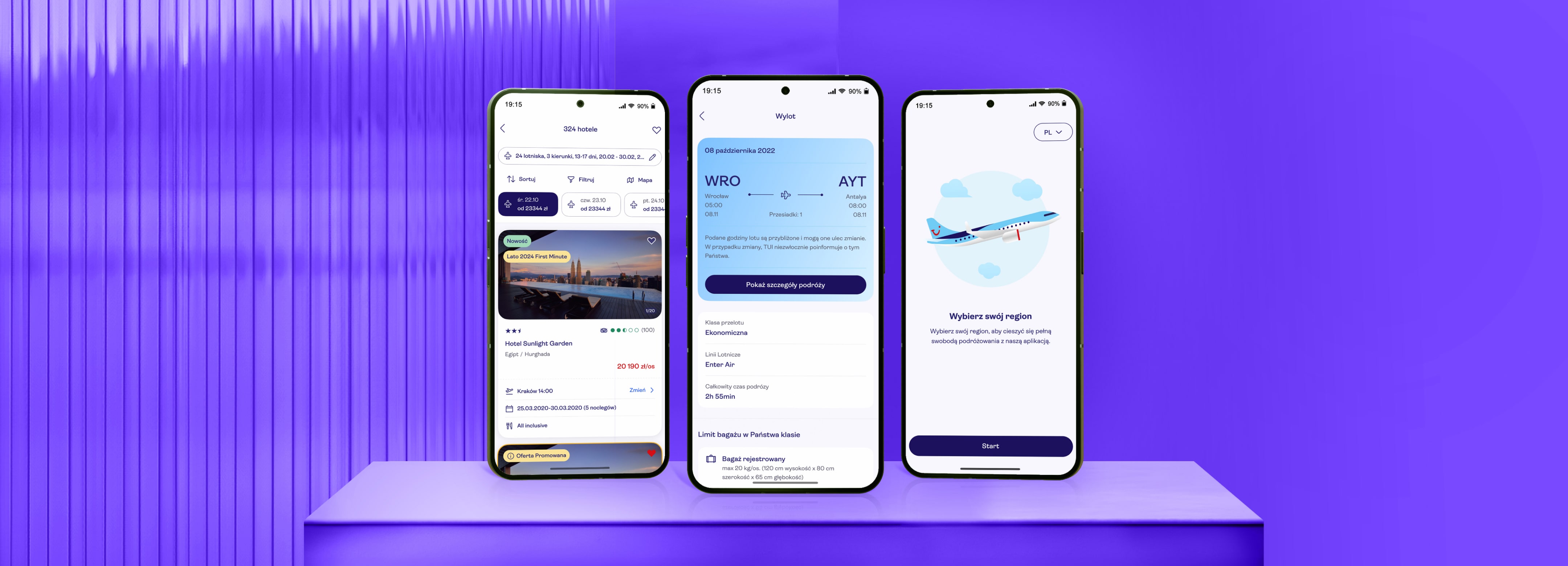
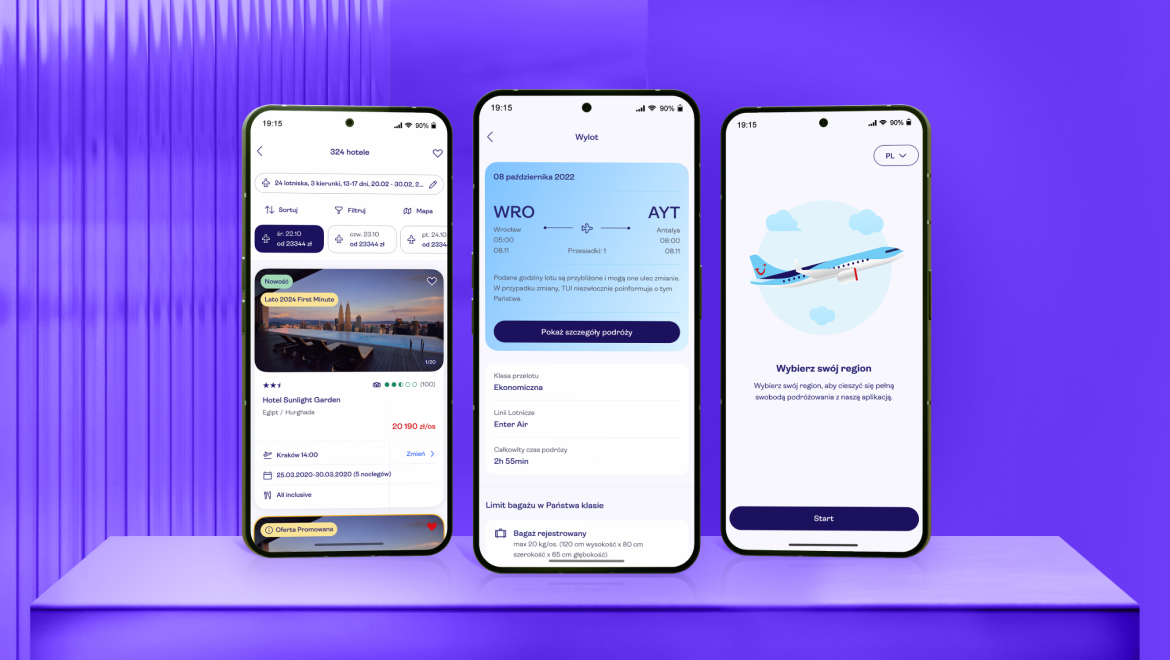
1M+
downloads on Google Play, empowering travel clients with easy access to booking solutions.
35%
year-over-year growth in app users, driven by enhanced engagement strategies for travel enthusiasts.
1M
new users gained with the travel app connecting travellers with seamless travel planning services.
Your travel advantage

Drive business growth and ROI
Implement tailored technology solutions to accelerate user acquisition and expand digital channels. Focus on achieving sustainable growth and maximizing returns through innovation-driven strategies.
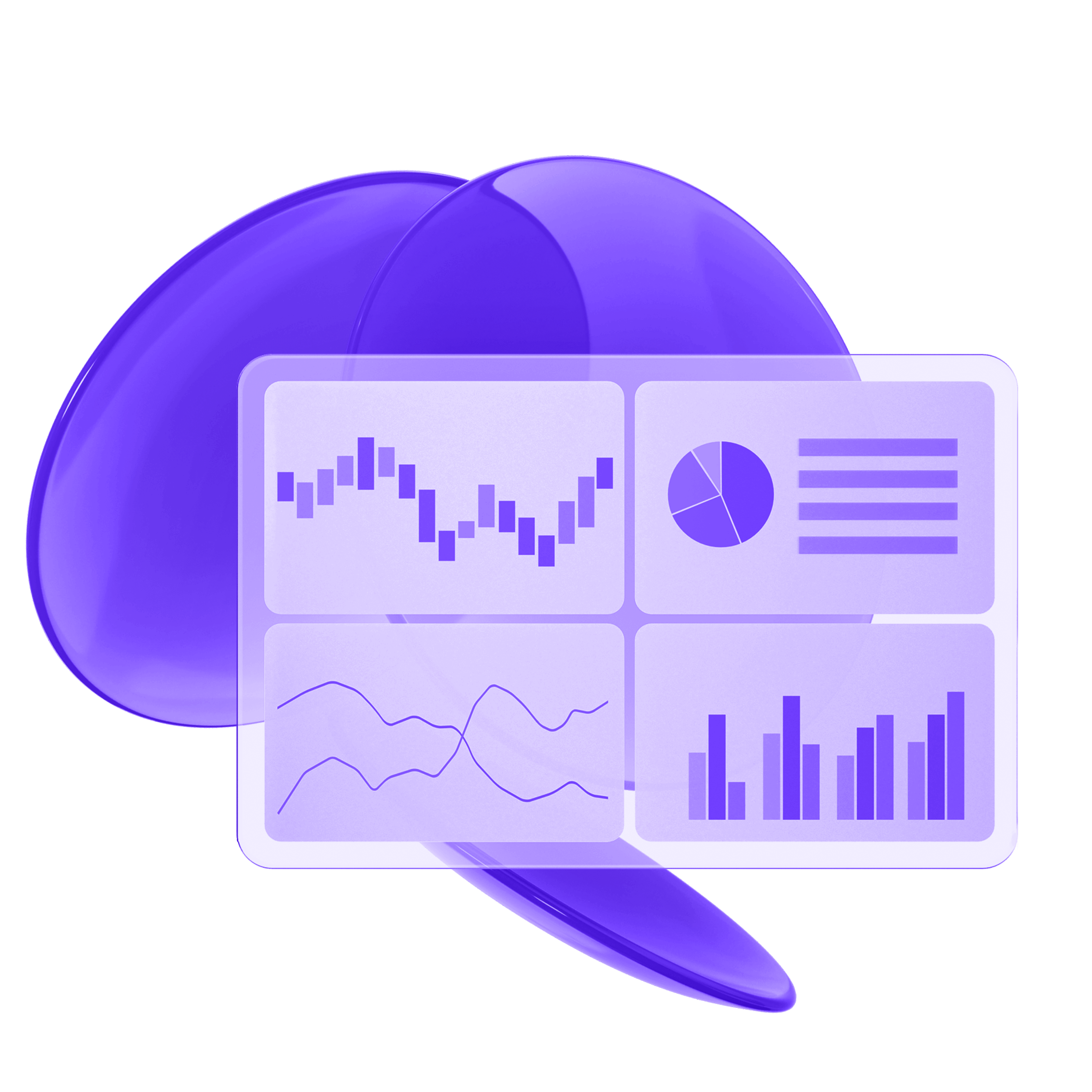
Streamline resource management
Efficiently balance resources between maintenance and development with mobile channel management. Minimize downtime from operational bottlenecks, freeing time for innovation and long-term growth initiatives.

Simplify system integration
Integrating diverse systems after acquisitions can reduce costs and complexity. Comprehensive mobile solutions ensure seamless operations, maintaining service quality and security while scaling effectively.
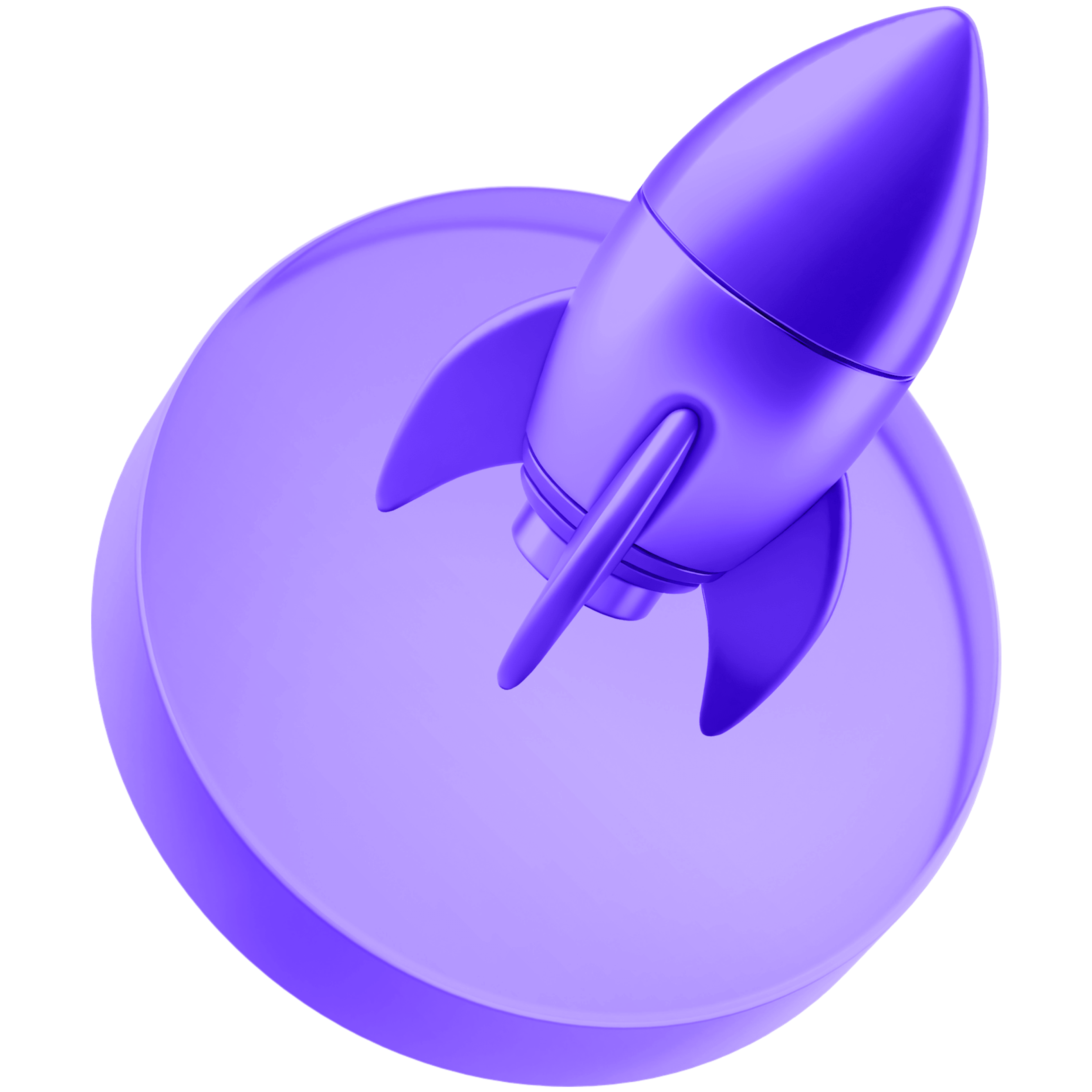
Enhance market competitiveness
Stay ahead of price and talent competition with competitive analysis and market-ready strategies. Deliver exceptional user experiences to win customers in a crowded travel market and outperform rivals.
1 of 4
Here’s what our clients say
Top-notch software, award-winning design, revolutionary mobile apps. Listen to our clients and discover what’s possible for you.
See our portfolio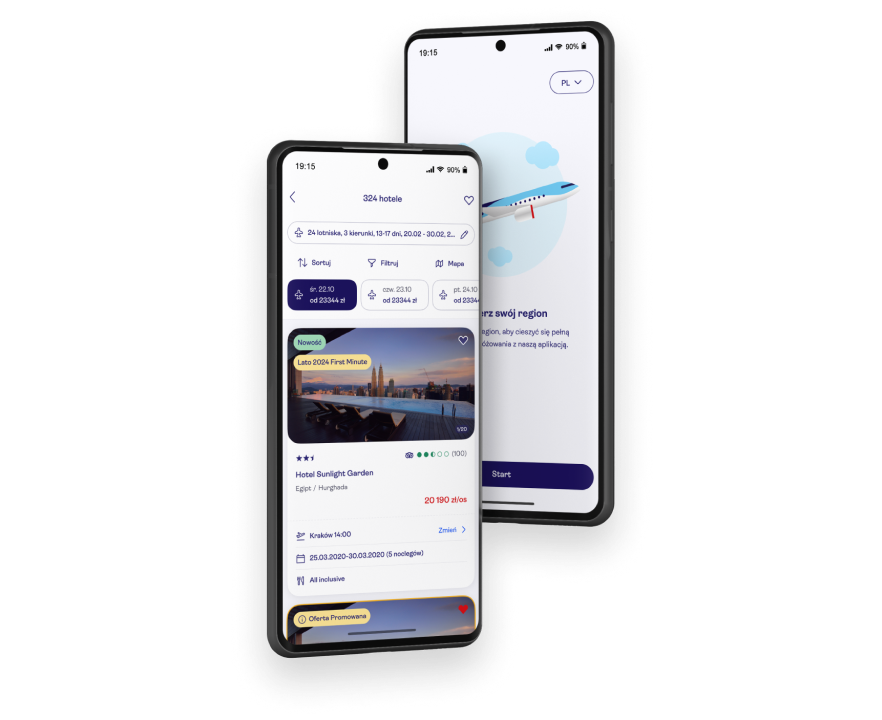
“Miquido’s team is agile, responsive, and eager to share their ideas for improvements.”
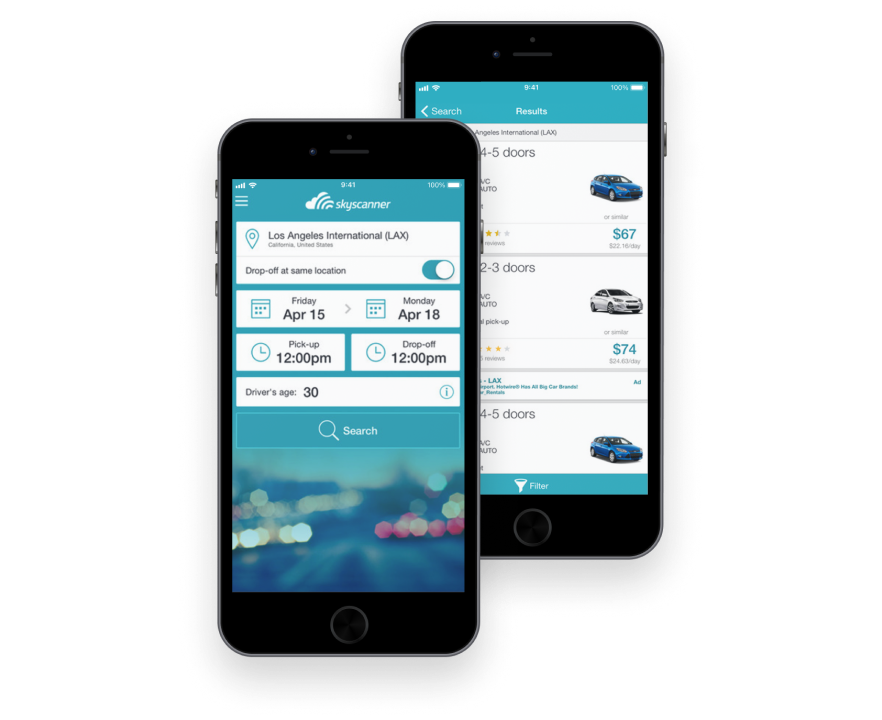
“Miquido was engaged throughout the project and responded well to the expeditious timeline. They were proactive in project management and understood the requirements and challenges.”
1 of 2
What are the best features a travel app should include?
– Augmented Reality: With AR, users can view their surroundings through the camera of their smartphone and receive information about nearby points of interest, historical landmarks, and other tourist attractions. This can be a fun and engaging way for users to explore new destinations and learn more about the places they are visiting.
– Local culture insights: Information about local traditions and etiquette can help travellers better understand the local culture and avoid cultural misunderstandings. This feature can benefit international travellers visiting destinations with vastly different customs and cultural norms.
– Language Learning: Offering language learning tools within the travel app can be a valuable feature for international travellers looking to learn basic phrases and improve their language skills. This can help users better communicate with locals and navigate their surroundings more effectively.
– Personalisation: This feature can make your travel app genuinely unique. By utilising machine learning algorithms and user data, travel apps can offer personalised recommendations for activities, restaurants, and attractions based on users’ preferences and travel history.
– Travel itinerary generator: This can be a valuable tool for users who want to plan their trips. It allows users to easily create custom travel itineraries, including flights, hotels, and activities, based on their preferences and travel goals.
– Location-based emergency services: It is also a must-have feature for any travel app, as they provide users with access to emergency services such as hospitals, police stations, and fire departments in an emergency
How long does it take to create a travel app?
In general, creating a basic travel app with essential features such as a booking system, in-app translation, payments, user ratings, and a travel itinerary generator can take three to six months.
On the other hand, a more complex travel app that incorporates unique features such as augmented reality, chatbots, and artificial intelligence can take much longer to develop. These types of apps require more advanced programming and specialised expertise, which can significantly extend the development timeline.
Additionally, the development process can be further complicated by integrating third-party platforms and services, such as booking engines, payment gateways, and social media platforms. Integration with these platforms requires additional time and effort and can impact the overall timeline for app development.
There is no clear-cut answer to the question of the time needed to create a tourism application. Each project requires completely different solutions and a different approach, which can affect the timeframe. The best way to get an accurate time frame is to contact the project team and provide accurate information about your product’s requirements.
How much does travel app development cost?
In addition to these factors, other aspects can impact the cost of travel app development, such as the choice of the technology stack, the design of the user interface and user experience, the integration of third-party services, and the scope and scale of the project.
To provide a general overview, simple travel guide apps with basic features, such as a map and a list of tourist attractions, can cost anywhere between $50,000 to $100,000 to develop. More complex travel apps that require advanced features, such as augmented reality, chatbots, and artificial intelligence, can cost upwards of $200,000 or more.
In conclusion, the cost of travel app development depends on several factors, including the choice of the technology stack, user interface and user experience design, integration of third-party services, and the scope and scale of the project. Working with a knowledgeable and experienced development team can help to optimise the development process and minimise costs.
How do we create travel apps in Miquido?
The first phase in the travel app development process is learning about the client’s business needs and verifying their idea with real users . This stage involves conducting research and analysis to better understand the target audience and the project’s requirements.
The next step is to specify the details through tailored workshops focusing on data, products, or strategy . These workshops allow Miquido to gain a deeper understanding of the client’s unique needs and expectations and to collaborate with them to develop a clear and detailed plan for the project.
Once the project details have been specified, we begin the design and development process . This typically takes around three months to complete the Minimum Viable Product ready for market release. During this stage, Miquido works closely with the client to ensure that the product meets their expectations and requirements.
After the product is launched, we continue to collect feedback from users to improve the product and address any issues . They also offer ongoing maintenance, support, and updates to ensure the product remains up-to-date and functional.
Yet, once again, we’d like to highlight that we approach each client and every project individually, so your experience with us may differ from the generalised approach described above.
Haven’t you found the answers?
Talk to usAvailable for projects
Want to talk about your project?
Partner with us for a digital journey that transforms your business ideas into successful, cutting-edge solutions.
